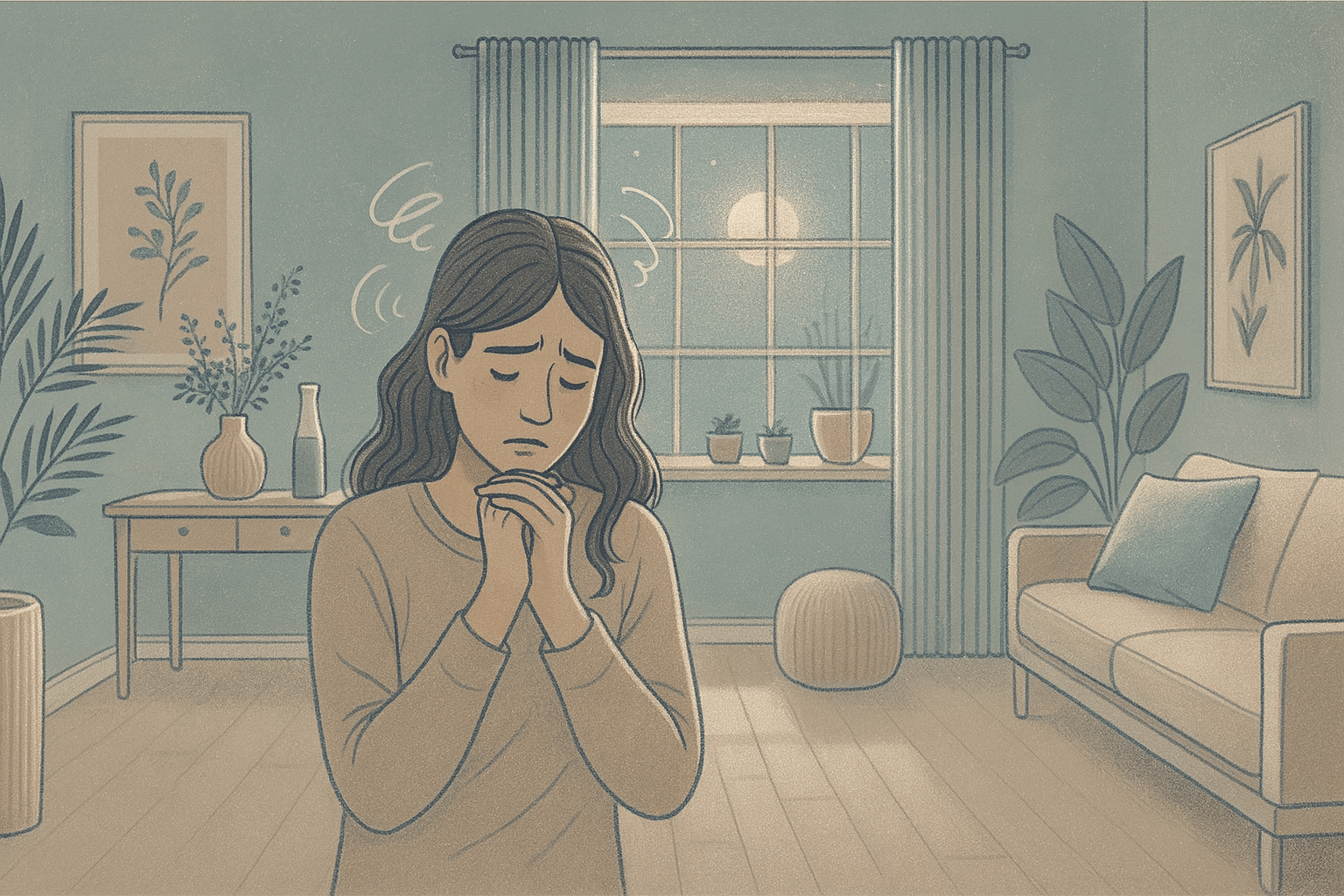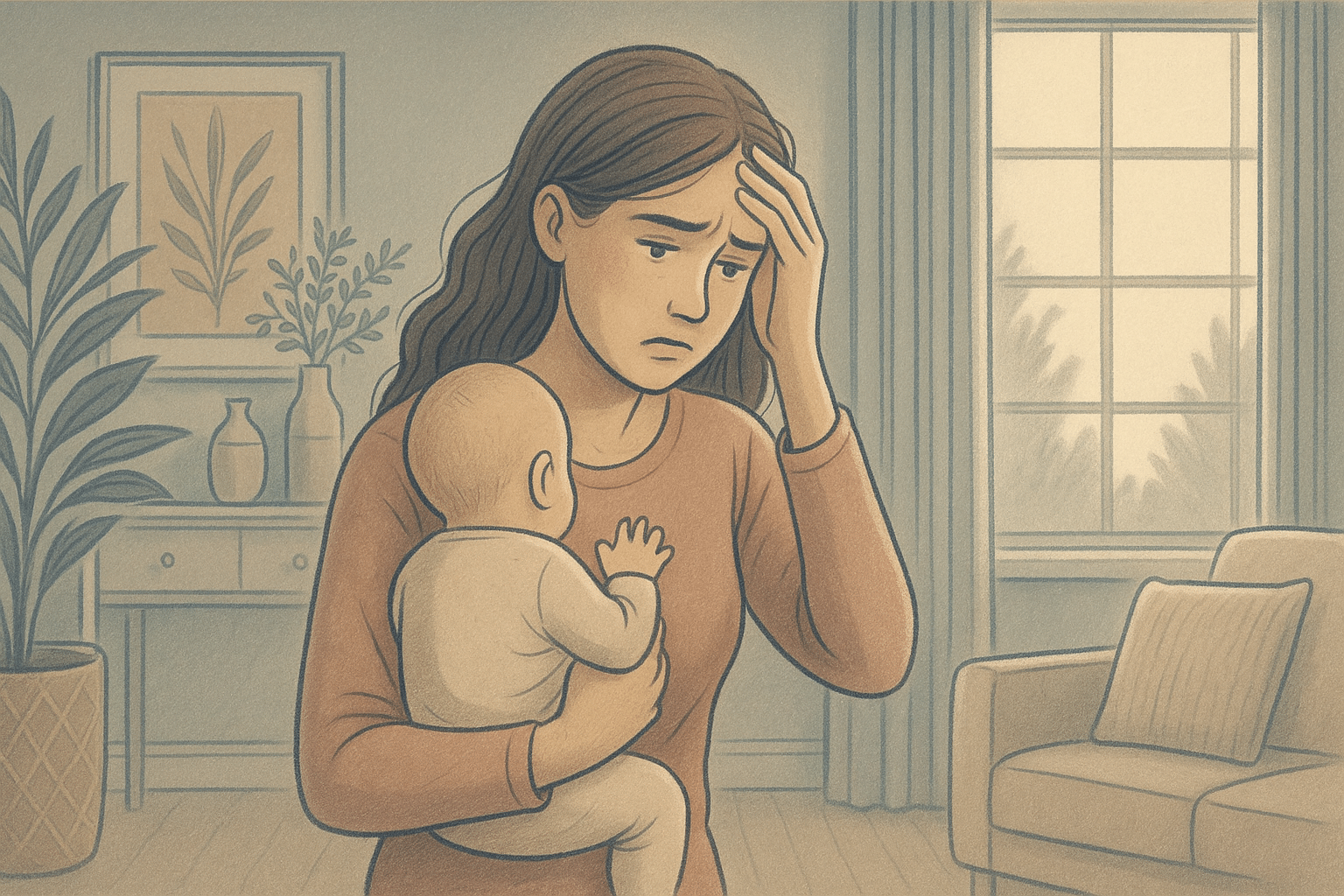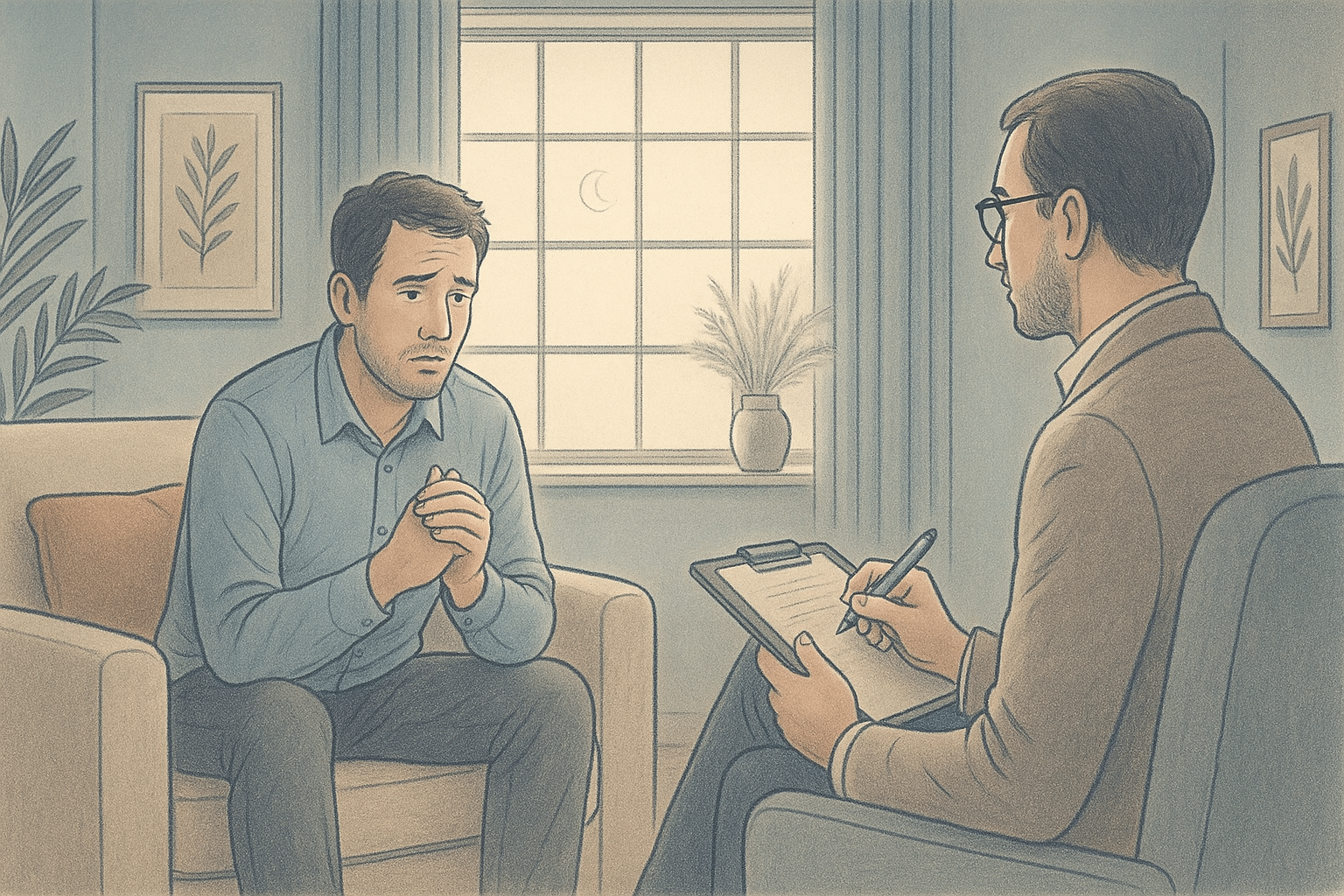Key Takeaways
- Brief psychotic disorder typically lasts less than 1 month, with symptoms resolving completely afterward in most cases.
- This condition is triggered by significant stressors like trauma, extreme stress, or postpartum factors and includes symptoms like hallucinations, delusions, and disorganized behavior.
- Unlike schizophrenia, which is chronic, brief psychotic disorder is temporary, though proper treatment is essential for full recovery.
- While some individuals may experience recurrence if exposed to similar stressors, most people with brief psychotic disorder make a complete recovery with appropriate treatment.
- A Mission For Michael offers specialized care for brief psychotic disorder, combining immediate symptom stabilization with long-term recovery planning. Our multidisciplinary approach integrates medication management, psychotherapy, and family support to ensure optimal outcomes.
Brief Psychotic Disorder Duration
By definition, brief psychotic disorder is a short-term condition with a specific timeframe. To meet the diagnostic criteria, symptoms must last at least one day but less than one month, with a complete return to premorbid functioning afterward. This distinguishes it from longer-lasting psychotic conditions and provides hope for those affected, as full recovery is the expected outcome.
Recovery Factors
Several factors can influence how quickly someone recovers from brief psychotic disorder. In our clinical experience, early intervention is one of the most critical factors. When treatment begins promptly after symptoms appear, the duration of the psychotic episode often shortens significantly. The nature of the triggering event also plays a role. Those experiencing psychosis following extreme trauma may have a different recovery trajectory than those whose episode was triggered by other stressors.
Individual resilience factors, such as previous coping skills, social support network strength, and pre-existing mental health conditions, can all impact recovery time.
Difference From Schizophrenia
The primary distinction between brief psychotic disorder and schizophrenia is the duration of symptoms. While brief psychotic disorder resolves within one month, schizophrenia requires symptoms to persist for at least six months. Additionally, brief psychotic disorder typically has an identifiable trigger or stressor, whereas schizophrenia often develops more gradually without a clear precipitating event.
The prognosis also differs significantly. Brief psychotic disorder usually results in complete recovery, while schizophrenia typically requires long-term management.
| A Mission For Michael: Expert Mental Health Care Founded in 2010, A Mission For Michael (AMFM) offers specialized mental health care across Southern California, Minnesota, and Virginia. Our accredited facilities provide residential and outpatient programs, utilizing evidence-based therapies such as CBT, DBT, and EMDR. Our dedicated team of licensed professionals ensures every client receives the best care possible, supported by accreditations from The Joint Commission and the California Department of Health Care Services. We are committed to safety and personalized treatment plans. Start your recovery journey with AMFM today! |
Recognizing Symptoms of Brief Psychotic Disorder

Brief psychotic disorder presents with symptoms similar to other psychotic conditions, but it’s the duration that sets it apart.
Hallucinations
Hallucinations involve perceiving something that isn’t actually present in the external environment. During a brief psychotic episode, individuals may experience hallucinations across any sensory modality: seeing objects or people that aren’t there, hearing voices or sounds, feeling sensations on their skin, smelling odors, or even tasting things that aren’t present. Auditory hallucinations (hearing voices) are particularly common in psychotic disorders.
These perceptual disturbances feel completely real to the person experiencing them, making it difficult to convince them that what they’re perceiving isn’t actually happening. The content of hallucinations varies widely among individuals. Some might hear commanding voices telling them to do certain things, while others might see shadowy figures or experience more complex visual scenarios.
For example, someone who developed a brief psychotic disorder after losing a loved one might hear the deceased person’s voice or see their image. Understanding the connection between the hallucination content and the precipitating stressor can sometimes help in the therapeutic process.
Delusions
Delusions are fixed, false beliefs that persist despite evidence to the contrary. During brief psychotic disorder, individuals may develop various types of delusions, including paranoid delusions (believing others are plotting against them), grandiose delusions (believing they have special powers or importance), or referential delusions (believing random events or objects have special significance related to them). These beliefs are held with absolute conviction and are not responsive to logical reasoning.
What makes delusions in brief psychotic disorder particularly noteworthy is their sudden onset. Someone might function normally one day and then develop elaborate delusional systems the next. We often see delusions that thematically connect to the stressor that triggered the episode. For instance, a person who experiences brief psychotic disorder after being robbed might develop paranoid delusions about being constantly watched or targeted.
Disorganized Behavior
Disorganized behavior during brief psychotic disorder can manifest in various ways, from difficulty performing routine tasks to completely unpredictable or inappropriate behaviors. Individuals might dress inappropriately for the weather, neglect personal hygiene, display unusual mannerisms, or exhibit childlike behavior.
This disorganization often significantly interferes with normal daily functioning and can be particularly distressing for family members witnessing these changes.
Speech Abnormalities
Speech patterns often change noticeably during brief psychotic episodes. Individuals may experience disorganized thinking that manifests as loose associations (jumping between unrelated topics), tangentiality (being unable to reach the point of a conversation), or incoherence (speech that is incomprehensible).
Some people exhibit pressured speech (talking rapidly without pause) or poverty of speech (minimal verbal output). These communication changes can make it difficult for family members to understand and connect with their loved one during the episode.
Common Triggers
Traumatic Events
Severe traumatic events can sometimes trigger brief psychotic disorder in vulnerable individuals. These might include experiencing or witnessing violence, natural disasters, serious accidents, or sudden significant losses. The relationship between trauma and psychosis is complex, involving both psychological responses to extreme stress and potential neurobiological changes in response to trauma.
We’ve observed that the psychotic symptoms sometimes incorporate elements of the traumatic experience. For example, someone who experienced a serious car accident might develop delusions related to vehicles or transportation. The psychotic episode can be understood partly as the mind’s maladaptive attempt to process overwhelming traumatic information. Trauma-informed care is therefore essential when treating brief psychotic disorder with a clear traumatic trigger.
Extreme Stress
Periods of intense psychological stress can precipitate brief psychotic disorder even when they don’t involve traditional trauma. Major life transitions, relationship breakdowns, financial crises, legal problems, or work-related stress can all potentially trigger psychotic episodes in vulnerable individuals.
The threshold at which stress might trigger psychosis varies considerably between individuals based on biological vulnerability, coping skills, and support systems.
Postpartum Factors

The postpartum period represents a time of particular vulnerability for brief psychotic disorder in women.
Postpartum psychosis, a form of brief psychotic disorder, typically emerges within the first two weeks after childbirth. The rapid hormonal shifts following delivery, combined with sleep deprivation and the psychological adjustment to parenthood, create a perfect storm of biological and psychological stressors that can trigger psychosis in vulnerable individuals.
Postpartum psychosis is a psychiatric emergency requiring immediate intervention due to the potential risks to both mother and infant. With proper treatment, the prognosis for complete recovery from postpartum psychosis is generally good, though careful monitoring during subsequent pregnancies is recommended.
Treatment Options
Medication Approaches
Antipsychotic medications are typically the first-line treatment for brief psychotic disorder. These medications help reduce hallucinations, delusions, and disorganized thinking by regulating dopamine and other neurotransmitters in the brain. Second-generation (atypical) antipsychotics such as risperidone, olanzapine, or aripiprazole are often preferred due to their favorable side effect profiles compared to older medications.
The medication approach for brief psychotic disorder differs from that for chronic psychotic disorders in terms of duration. Most individuals require antipsychotic medication only for the acute phase of the disorder and a short period afterward, typically 1–3 months total. Occasionally, short-term anti-anxiety medications may also be prescribed to help manage agitation or severe anxiety during the acute phase.
Psychotherapy Benefits

While medication addresses the biological aspects of brief psychotic disorder, psychotherapy addresses the psychological components.
Cognitive Behavioral Therapy (CBT) can help individuals understand and manage their psychotic experiences, challenge delusions, and develop coping strategies. Supportive therapy provides emotional validation and helps process the often frightening experience of psychosis. For cases triggered by trauma, trauma-focused therapies may be incorporated once the acute psychotic symptoms have resolved.
Family therapy is another valuable component, helping loved ones understand the condition and learn how to provide appropriate support. Therapy also addresses the stressors or traumatic events that triggered the episode, developing strategies to prevent recurrence.
Hospitalization Criteria
Hospitalization may be necessary during a brief psychotic episode, particularly when safety concerns are present. We consider hospitalization when individuals are at risk of harming themselves or others, unable to care for basic needs, experiencing severe symptoms that cannot be managed in an outpatient setting, or lacking adequate social support.
Inpatient treatment provides a safe, structured environment where medications can be initiated and monitored closely. The decision for hospitalization is always individualized and based on a comprehensive assessment of risk factors, symptom severity, and available support systems.
For some individuals, partial hospitalization programs or intensive outpatient treatment may be appropriate alternatives that provide structured treatment while allowing them to return home in the evenings.
Recovery Process
Expected Timeline
The recovery timeline for brief psychotic disorder typically spans several weeks to a few months, though the acute psychotic symptoms themselves resolve within one month by definition. Initial improvement often begins within days of starting medication, with hallucinations and delusions becoming less intense or frequent.
Complete symptom resolution typically occurs within 2–4 weeks of treatment initiation. Following symptom resolution, we generally recommend continuing medication for at least a few additional weeks and engaging in therapy for several months to process the experience and develop preventive strategies.
Success Rates
Brief psychotic disorder has one of the most favorable prognoses among psychotic disorders. Studies indicate that many individuals experience complete recovery with no residual symptoms. Most return to their previous level of functioning in work, relationships, and daily activities. The temporary nature of the condition and its clear connection to identifiable stressors contribute to this positive outlook.
Relapse Prevention
While brief psychotic disorder typically occurs just once, some individuals may experience recurrence if exposed to similar significant stressors in the future. Prevention strategies focus on developing robust stress management techniques, maintaining healthy sleep patterns, recognizing early warning signs, and creating a wellness plan for responding to future stressors. We work with clients to identify their unique vulnerability factors and develop personalized strategies to enhance resilience when facing life challenges.
Understanding Duration and Recovery with AMFM
At A Mission For Michael, our clinical experience demonstrates that early intervention significantly reduces the duration and severity of brief psychotic disorder. Through our integrated treatment approach combining medication management, psychotherapy, and family support, we help clients achieve complete recovery while developing strategies to prevent recurrence.

Our team of clinicians create safe, non-judgmental environments where healing can begin.
The temporary nature of brief psychotic disorder, combined with proper treatment, offers tremendous hope for full restoration of functioning. Our specialized teams across California, Virginia, and Washington provide immediate stabilization while focusing on long-term recovery planning.
We emphasize that brief psychotic disorder is highly treatable, with most individuals returning to their previous level of functioning within the one-month timeframe when receiving appropriate care and support.
Frequently Asked Questions
Can brief psychotic disorder become schizophrenia?
Brief psychotic disorder and schizophrenia are distinct conditions primarily differentiated by duration. Most individuals (50–80%) who experience brief psychotic disorder do not develop schizophrenia or other chronic psychotic disorders. However, in some cases, what initially appears to be brief psychotic disorder may evolve into a longer-lasting condition if symptoms persist beyond one month or recur frequently.
Is medication always necessary for treatment?
While antipsychotic medication is considered first-line treatment for brief psychotic disorder, the approach must be individualized. For most individuals experiencing acute psychotic symptoms, medication provides the fastest and most effective symptom relief. However, in cases with mild symptoms, strong support systems, and no safety concerns, intensive psychosocial interventions with close monitoring might be attempted.
Can brief psychotic disorder occur more than once?
While brief psychotic disorder often occurs just once in a person’s lifetime, recurrence is possible, particularly if the individual experiences similar significant stressors in the future. The risk varies based on individual vulnerability factors, the nature of the initial triggering event, and the development of coping strategies following the first episode.
How is brief psychotic disorder diagnosed?
Diagnosing brief psychotic disorder involves comprehensive evaluation including psychiatric assessment, medical history review, physical examination, and sometimes laboratory tests to rule out medical causes. The diagnosis requires at least one psychotic symptom lasting at least one day but less than one month, with eventual full return to normal functioning.
Are certain populations more vulnerable to brief psychotic disorder?
Young adults in their late teens and twenties face higher risk, as do women in the postpartum period due to hormonal fluctuations and psychological adjustment to parenthood. Individuals with certain personality traits, family histories of mood disorders, or those who have experienced traumatic brain injuries may also be more susceptible to developing brief psychotic disorder. At A Mission for Michael, we provide specialized support for vulnerable populations, including postpartum women and young adults providing personalized treatment programs that ensure total recovery from psychotic episodes.






